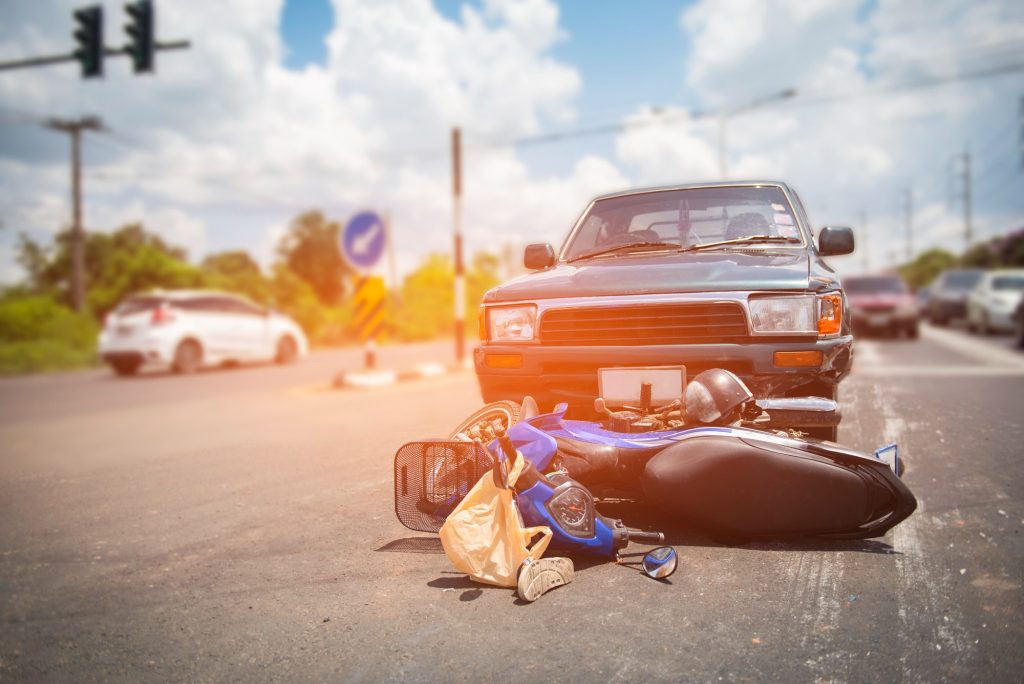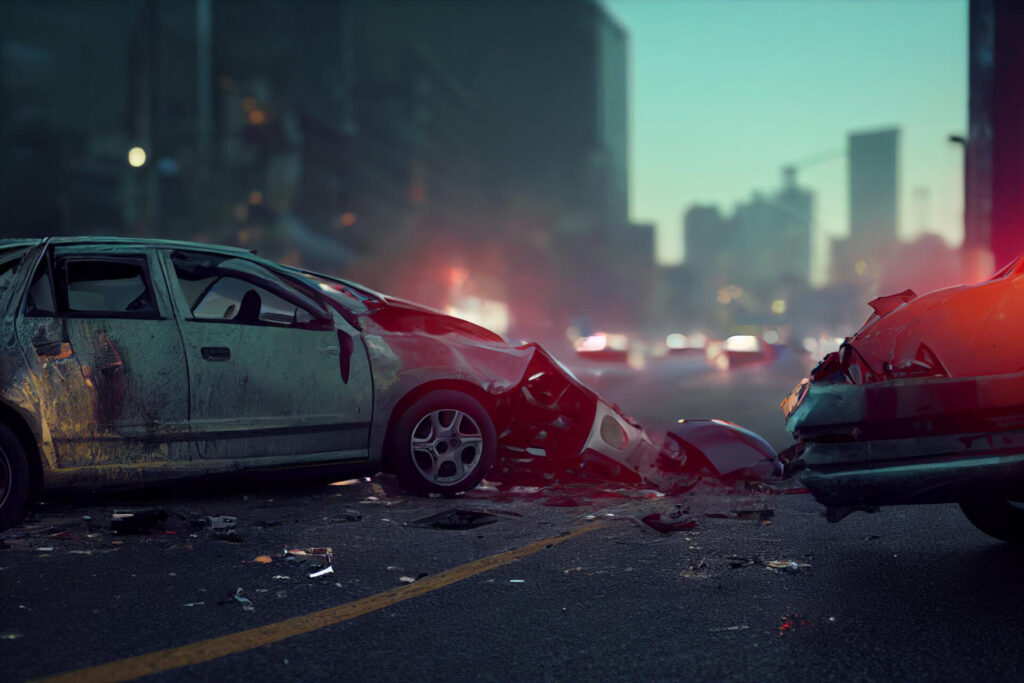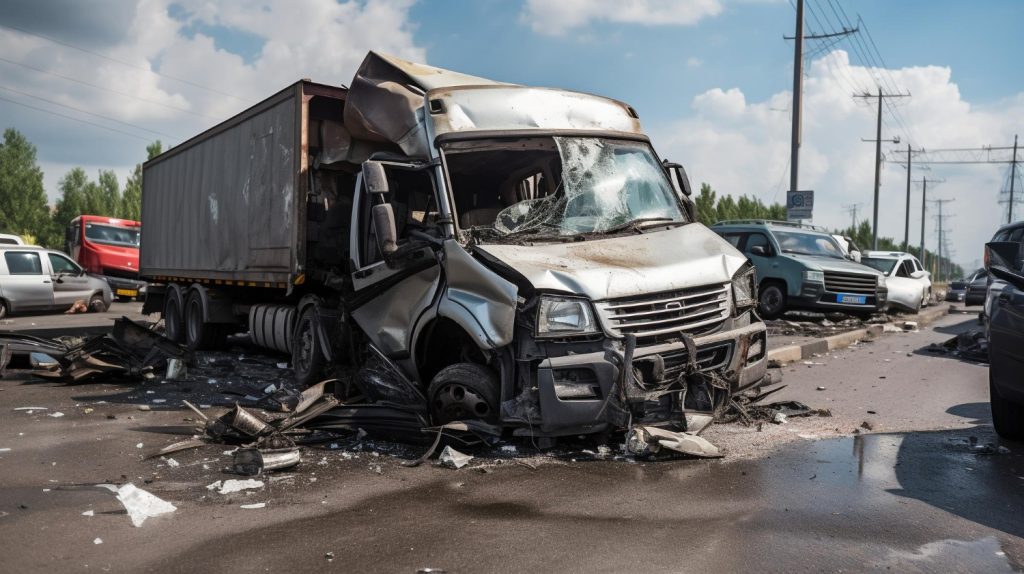Key Takeaways:
- Complex Legal Landscape: Accidents with commercial delivery vehicles in Ocala involve intricate Florida laws, unlike standard car accidents, requiring specialized knowledge to navigate effectively.
- Multiple Liable Parties: These crashes often implicate various parties, such as drivers, trucking companies, or manufacturers, making it critical to identify all responsible entities.
- Severe Impact Potential: The size of delivery trucks means collisions frequently result in serious injuries or significant property damage, amplifying the stakes.
- Corporate Involvement: Trucking companies often deploy legal teams quickly, putting victims at a disadvantage without experienced representation.
- Specialized Regulations: Florida’s commercial vehicle laws add layers of complexity, with specific rules governing drivers and companies that don’t apply to regular accidents.
- Insurance Challenges: Dealing with commercial insurance policies is tougher than standard auto insurance, often requiring expert negotiation for fair compensation.
- Higher Stakes for Recovery: The severity of injuries in these accidents can lead to mounting medical bills, making it essential to secure adequate financial recovery.
- Need for Legal Expertise: Understanding corporate liability and commercial vehicle law is crucial to protect your rights and achieve justice after a crash.
- Time-Sensitive Action: Quick legal action is vital, as evidence can disappear and companies may act fast to minimize their liability.
- Emotional and Financial Toll: These accidents often leave victims grappling with stress, paperwork, and uncertainty, underscoring the need for professional support.
The moment a delivery truck crushes your car in Ocala, corporate lawyers are already working to destroy your case before you even know how badly you’re hurt. These companies have accident response teams that rush to crash scenes faster than paramedics – not to help you, but to gather evidence they can use to blame you for the accident their driver caused. Here’s what these delivery giants don’t want you to know: their trucks often carry millions in insurance coverage, but they’ll spend hundreds of thousands on legal fees to avoid paying you a dime.
They’ll claim their driver wasn’t at fault, that you caused the accident, or that your injuries aren’t as serious as you claim – even when their 80,000-pound truck left you with a traumatic brain injury or crushed spine. As an experienced Ocala delivery truck accident attorney, I’ve gone toe-to-toe with these corporate legal teams and forced them to pay millions to victims they tried to abandon. Don’t let delivery companies treat you like roadkill – when their driver destroys your life to meet an impossible delivery deadline, their insurance should pay to rebuild it.”
Understanding Commercial Delivery Vehicles
Commercial delivery vehicles encompass a wide range of vehicles that are substantially larger and heavier than passenger cars. In Ocala’s bustling logistics network, you’ll encounter various types of delivery vehicles daily:
Common Types of Delivery Vehicles
| Vehicle Type | Description | Risk Level |
| FedEx/UPS Trucks | Large delivery vans for package transport | High |
| Amazon Delivery Vans | Smaller than semi-trucks but heavier than cars | Medium-High |
| Box Trucks | Used for local freight deliveries | High |
| Semi-Trucks | Large tractor-trailers for long-haul deliveries | Very High |
| Refrigerated Trucks | Specialized vehicles for perishable goods | High |
| Delivery Motorcycles | Used by food delivery services | Medium |
| Dump Trucks | Heavy construction vehicles occasionally used for deliveries | Very High |
| Cargo Vans | Smaller commercial vehicles for local business purposes | Medium |
The sheer size and weight of these commercial vehicles make accidents involving commercial vehicles particularly devastating. When a delivery truck collides with passenger cars, the occupants of smaller vehicles typically suffer the most severe injuries due to the significant difference in mass and momentum. Understanding commercial vehicle accidents requires recognizing that these large truck incidents often result in more serious injuries than typical automobile accidents.
Delivery Truck Accidents: The Sobering Statistics
The frequency and severity of delivery truck accidents in Florida paint a concerning picture. According to recent data, Florida experienced 340 fatalities involving large trucks in 2022, ranking third in the nation. Nationally, there were over 160,000 injuries related to large truck crashes in 2022.Nationally, over 160,000 people were injured and nearly 6,000 killed in large truck crashes in 2022
Common Causes of Commercial Vehicle Accidents
Understanding why these accidents happen is crucial for both prevention and building a strong legal case. The causes typically fall into several categories:
Driver-Related Factors
Driver fatigue remains one of the leading causes of commercial vehicle accidents. Delivery drivers often work long hours under tight deadlines, and many take on second jobs, leading to dangerous levels of drowsiness behind the wheel. This fatigue is comparable to impaired driving in terms of its impact on reaction times and decision-making.
Distracted driving is another significant factor. With GPS devices, delivery schedules, and the pressure to maintain contact with dispatchers, delivery truck drivers face numerous distractions that can lead to devastating accidents.
Driver error also plays a crucial role in many delivery truck accident cases. Excessive speed, especially on poorly maintained roads, can lead to head on collisions or vehicles involved in multi-car accidents. Reckless driving behaviors, including failure to follow weight limits and improper handling of cargo loaders, contribute to serious incidents.
Company-Related Issues
Trucking companies and delivery services bear responsibility for many accidents through:
- Inadequate maintenance records: Failure to properly maintain vehicles can lead to mechanical failures
- Negligent hiring practices: Not properly vetting drivers or checking their driving records and drug test results
- Unrealistic delivery schedules: Pressuring drivers to meet impossible deadlines
- Insufficient training: Not providing adequate safety training for drivers
- Improperly loaded cargo: Failing to secure loads properly, which can cause vehicles to become unstable
Delivery companies must ensure their drivers understand proper loading procedures and weight distribution to prevent accidents caused by shifting or unsecured cargo.
External Factors
Road conditions, weather, and the actions of other drivers can contribute to accidents. In Ocala, factors like heavy rain, construction zones, and drivers unfamiliar with local routes can increase accident risks.
The Complex World of Liability
Determining liability in commercial vehicle accidents is far more complicated than in standard car accidents. Multiple parties may be held accountable:
Potentially Liable Parties
- The Driver: Responsible for negligent actions like speeding, distracted driving, or driver fatigue
- The Trucking Company: Liable for negligent hiring, inadequate training, or pressuring drivers
- Maintenance Companies: May be at fault for improper maintenance or failing to identify mechanical issues
- Delivery App Companies: Companies like Amazon may share liability depending on the driver’s status
- Vehicle Manufacturers: In cases involving defective parts or design flaws
- Government Agencies: When poor road conditions contribute to accidents
Florida’s Comparative Negligence Law
Florida operates under a “pure comparative negligence” system, which means you can still recover damages even if you’re partially at fault for the accident. However, your compensation will be reduced by your percentage of fault. For example, if you’re found 30% at fault, your compensation would be reduced by 30%.
This system allows for recovery as long as you’re less than 51% at fault, making it crucial to have experienced legal representation to minimize your assigned fault percentage.
Navigating Personal Injury Law and Insurance
Florida’s no-fault insurance system adds another layer of complexity to delivery truck accident claims. Understanding this system is essential for protecting your rights and maximizing your compensation.
The No-Fault Insurance Process
Florida requires all drivers to carry a minimum of $10,000 in Personal Injury Protection (PIP) and $10,000 in Property Damage Liability (PDL) coverage
When You Can Step Outside No-Fault
If you suffer serious injuries that meet Florida’s “serious injury threshold,” you can step outside the no-fault system and pursue additional compensation from the at-fault party. This threshold includes:
- Permanent injury within a reasonable degree of medical probability
- Significant and permanent loss of an important bodily function
- Permanent injury that prevents you from performing substantially all of your usual activities
- Significant and permanent scarring or disfigurement
Essential Steps After a Delivery Truck Accident
If you’re involved in an accident with a delivery truck in Ocala, taking the right steps immediately can make all the difference in your case outcome. Here’s what you need to do:
Immediate Actions at the Accident Scene
- Ensure Safety First: Move to a safe location if you’re physically able
- Call 911: Florida law requires reporting crashes involving commercial vehicles, especially those with injuries or property damage exceeding $500. Emergency services will respond to provide medical assistance and document the scene
- Do Not Admit Fault: Avoid making statements about who caused the accident
- Seek Medical Attention: Even if injuries aren’t immediately apparent, get checked by a medical professional. Internal injuries may not be visible but can be life-threatening
Gathering Critical Evidence
The legal process begins at the accident scene when you gather evidence to support your case:
- Photograph Everything: Document vehicle damage, the accident scene, road conditions, and visible injuries
- Collect Contact Information: Get details from all drivers, witnesses, and the commercial vehicle’s company
- Note the DOT Number: Commercial vehicles must display Department of Transportation numbers
- Document Driver Information: Check if the driver has a valid commercial driver’s license
- Ask a Family Member: If possible, have someone help you gather information if you’re injured
Remember, proving negligence requires comprehensive documentation of all vehicles involved in the accident and the circumstances that led to the collision.
Dealing with Insurance Companies
While you must file with your own insurer for PIP benefits, be cautious when dealing with the commercial vehicle’s insurance company. These insurers often try to minimize payouts or get you to accept blame. Insurance claims involving commercial vehicles involve complex legal issues that require careful handling. It’s best to direct them to your attorney rather than giving statements without legal counsel.
The Claims Process: What to Expect
The claims process for commercial vehicle accidents involves several stages, each requiring careful attention to detail and legal expertise. These cases involve complex legal procedures that differ significantly from standard automobile accidents.
Initial Investigation
A thorough investigation is crucial for building a strong case. This includes:
- Obtaining the police report
- Reviewing the driver’s logs and electronic logging devices
- Examining maintenance records
- Analyzing surveillance footage from the accident scene
- Interviewing witnesses
- Consulting with accident reconstructionists
- Reviewing medical records to document the full extent of injuries
Determining Fault and Liability
Your legal team will work to establish negligence by proving:
- The at-fault party had a duty of care
- They breached that duty
- The breach directly caused your injuries
- You suffered damages as a result
Proving negligence in delivery truck accident cases requires extensive evidence and expert testimony to demonstrate how the accident occurred and who was responsible.
Negotiating with Insurance Providers
Commercial vehicles typically carry higher insurance limits than passenger vehicles, but dealing with these insurance companies requires skilled negotiation. An experienced attorney knows how to present your case effectively and counter tactics used to minimize payouts. The goal is always to secure fair compensation that covers all your damages and losses.
Types of Compensation Available
Victims of commercial vehicle accidents may be entitled to various types of compensation:
Economic Damages
- Medical expenses (current and future)
- Lost wages and reduced earning capacity
- Property damage
- Medical bills and ongoing medical treatment costs
Non-Economic Damages
- Pain and suffering
- Emotional distress
- Loss of enjoyment of life
- Scarring and disfigurement
Punitive Damages
In cases involving gross negligence or intentional misconduct, punitive damages may be awarded to punish the wrongdoer and deter similar behavior.
The key to achieving fair compensation is working with an experienced law firm that understands the complexities of commercial vehicle cases and can negotiate a fair settlement that covers all your current and future needs.
The Importance of Legal Representation
Given the complexities involved in commercial vehicle accident cases, having knowledgeable legal counsel is essential. An experienced car accident attorney in Ocala can:
- Navigate federal regulations governing the trucking industry
- Investigate all potentially liable parties
- Negotiate with multiple insurance companies
- Ensure you meet all legal deadlines
- Maximize your compensation
A reputable law firm will offer a free consultation to evaluate your case and explain your legal options. During this consultation, they’ll review your medical records, assess the strength of your case, and explain how they can help you achieve the best possible outcome.
Remember, Florida’s statute of limitations for personal injury claims is two years for accidents occurring after March 23, 2023, and four years for accidents before that date. Missing these deadlines can cost you your right to compensation.
Prevention and Safety Measures
While we can’t control the actions of commercial drivers, understanding common risk factors can help you stay safer on Ocala’s roads:
For All Drivers
- Maintain a safe following distance from large vehicles
- Avoid driving in a truck’s blind spots (known as “no zones”)
- Be patient when trucks are turning or changing lanes
- Never cut off a commercial vehicle
For Commercial Drivers and Companies
- Ensure proper training and certification
- Maintain regular vehicle inspections
- Follow federal hours-of-service regulations
- Implement defensive driving practices
- Use electronic logging devices to monitor driver hours
Conclusion
Accidents involving commercial delivery vehicles in Ocala, FL, are complex matters that require specialized knowledge and experienced legal representation. The combination of Florida’s no-fault insurance system, comparative negligence laws, and the involvement of multiple potentially liable parties makes these cases challenging to navigate alone.
If you’ve been injured in a commercial vehicle accident, don’t let insurance companies minimize your claim or pressure you into accepting less than you deserve. The road to recovery can be difficult, but with the right legal guidance, you can focus on healing while your Ocala personal injury attorney fights for the compensation you need and deserve.
Remember, you don’t have to face this challenging time alone. Experienced legal professionals are here to guide you through every step of the process, from initial consultation through settlement or trial. Your primary goal should be healing—let legal experts handle the complex battle with insurance companies and work to secure the justice you deserve.
 CALL US NOW
CALL US NOW




